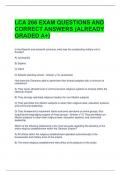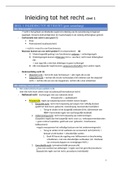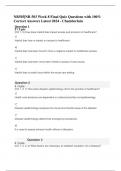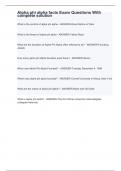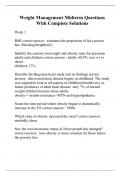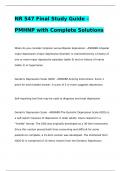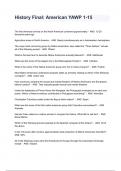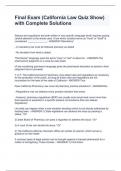Exam (elaborations)
LCA 266 EXAM QUESTIONS AND CORRECT ANSWERS (ALREADY GRADED A+)
- Module
- Institution
LCA 266 EXAM QUESTIONS AND CORRECT ANSWERS (ALREADY GRADED A+) In the fifteenth and sixteenth centuries, what was the outstanding military unit in Europe? A) Janissaries B) Sipahis C) Gazis D) Safavid standing armies - Answer A) Janissaries How were the Ottomans able to administer ...
[Show more]
